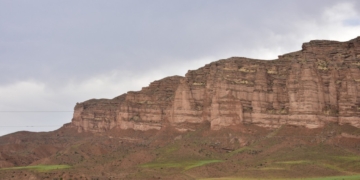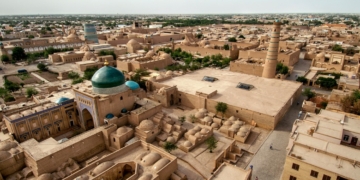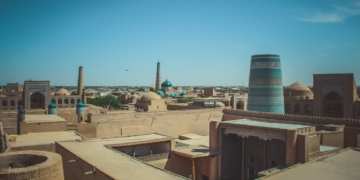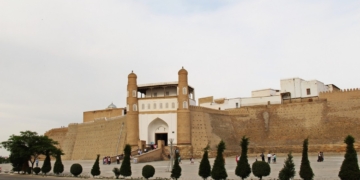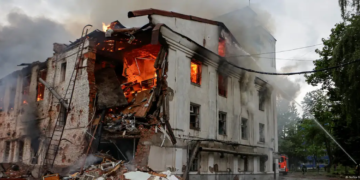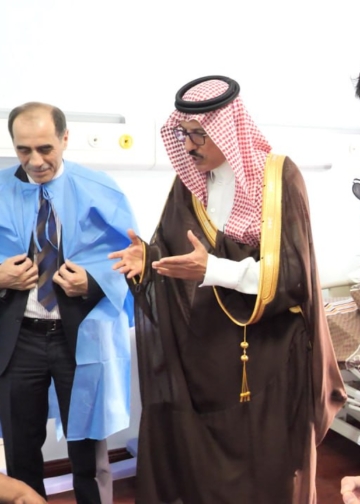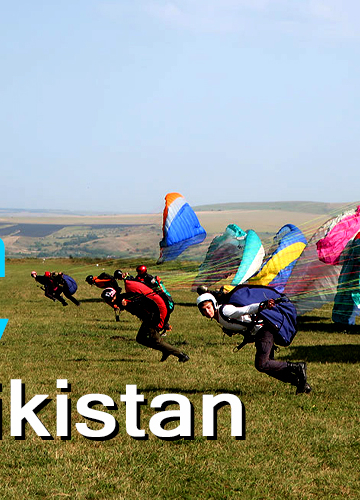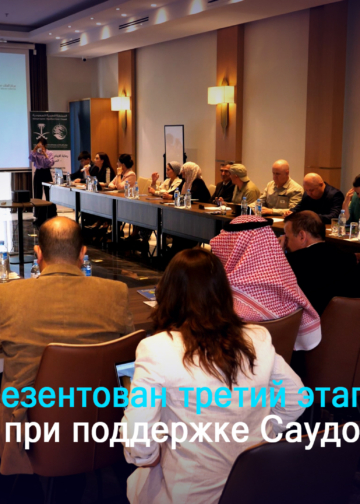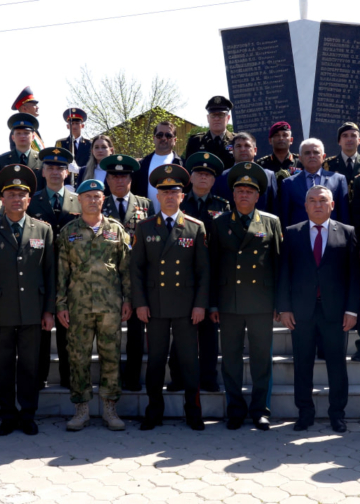id: 118122
date: 8/8/2007 10:12
refid: 07DUSHANBE1136
origin: Embassy Dushanbe
classification: UNCLASSIFIED//FOR OFFICIAL USE ONLY
destination: 07DUSHANBE1111
header:
VZCZCXRO4443
RR RUEHLN RUEHVK RUEHYG
DE RUEHDBU #1136 2201012
ZNR UUUUU ZZH
R 081012Z AUG 07
FM AMEMBASSY DUSHANBE
TO RUEHC/SECSTATE WASHDC 0750
INFO RUEAIIA/CIA WASHDC
RUCNCIS/CIS COLLECTIVE
RUEHBUL/AMEMBASSY KABUL 2217
RUEHBJ/AMEMBASSY BEIJING 1969
RUEHNE/AMEMBASSY NEW DELHI 2184
RUEHIL/AMEMBASSY ISLAMABAD 2222
RUCNDT/USMISSION USUN NEW YORK 1492
RUEHVEN/USMISSION USOSCE 2018
RUEHBS/USEU BRUSSELS 1247
RUEHDBU/AMEMBASSY DUSHANBE 2577
—————— header ends —————-
UNCLAS DUSHANBE 001136
SIPDIS
SENSITIVE
SIPDIS
STATE FOR SCA/CEN, DRL
E.O. 12958: N/A
TAGS: PGOV, PHUM, KIRF, TI
SUBJECT: TAJIK IMAMS DEFY LOCAL AUTHORITIES
REF: DUSHANBE 1111
1. (U) Following a campaign to shutter — and in some
cases
bulldoze — unregistered mosques in Dushanbe last month,
indications that the scope for freedom of religion in Tajikistan
is dwindling continue to surface.
However, some members of the
country’s religious leadership are resisting government efforts
to place restrictions on their followers’ freedom of worship.
Although the government has backed down in at least one recent
confrontation, it is uncertain how long dissent will be
tolerated.
2. (SBU) According to a local Embassy staff member,
the
Istaravshan district prosecutor approached Domullo Hamzakhon,
Imam of the city’s Guli Surkh mosque, demanding that children
under the age of 16 not be allowed to worship there. The
prosecutor claimed that his authority stemmed from newly enacted
legislation, but when Hamzakhon requested to see the text of
this law the prosecutor refused.
This prompted Hamzakhon to
assert that if the prosecutor wished to enforce his order he
would have to come to the mosque himself and explain his actions
to the congregation. The
prosecutor backed down in the face of
this challenge, and children continue to pray openly at
Hamzakhon’s mosque.
3. (U) Current Tajik law
stipulates that children under the age
of 16 need parental consent in order to worship at mosque. In
the past, local militia have driven vans to mosques in order to
round up children who they claim are truants and should be in
schools rather than in mosques.
In some incidents, local
community members, in a show of defiance, have stopped militia
from removing children.
4. (SBU) In another incident, the State Committee on
National
Security summoned Domullo Sirojiddin, Imam of an unregistered
mosque in the Zarafshon area of Dushanbe, to its offices on
August 6. This action came after
Sirojiddin received fines on
two occasions for continuing to lead prayers out in the open
air, next to his old mosque which authorities closed on July 26
along with several other unregistered mosques (REFTEL). His
first fine amounted to $35, while the second was nearly $300.
In addition to leading an unregistered mosque, it is likely that
security officials singled out Sirojiddin out for particular
attention because he is one of the few remaining religious
leaders to openly express radical, anti-government (and
sometimes anti-U.S.) opinions during his sermons.
5. (SBU) COMMENT:
The Istaravshan district prosecutor’s
insistence that his order comes from new legislation is
particularly foreboding, given constant rumors that parliament
will soon pass a restrictive draft law on religion. Parliament
is currently on recess and, according to parliamentarians, the
draft law has not yet been introduced.
However, the
prosecutor’s actions show that some government officials are
already certain that the draft will be signed into law and have
taken steps to implement it. The
above examples of protest
indicate that some Tajiks are not going to quietly obey new
regulations restricting religious freedom, particularly with
regard to Islam. END COMMENT.
JACOBSON
=======================CABLE ENDS============================
id: 118308
date: 8/9/2007 12:37
refid: 07TASHKENT1448
origin: Embassy Tashkent
classification: CONFIDENTIAL
destination: 07TASHKENT1258|07TASHKENT1448
header:
VZCZCXRO6024
PP RUEHDBU
DE RUEHNT #1448/01 2211237
ZNY CCCCC ZZH
P 091237Z AUG 07
FM AMEMBASSY TASHKENT
TO RUEHC/SECSTATE WASHDC PRIORITY 8284
INFO RUEHAH/AMEMBASSY ASHGABAT 3209
RUEHTA/AMEMBASSY ASTANA 9362
RUEHEK/AMEMBASSY BISHKEK 3820
RUEHBS/AMEMBASSY BRUSSELS 0387
RUEHDBU/AMEMBASSY DUSHANBE 3682
RUEHLO/AMEMBASSY LONDON 0893
RUEHFR/AMEMBASSY PARIS 0333
RUEHGV/USMISSION GENEVA 0788
RUEHVEN/USMISSION USOSCE 2027
RUEHBS/USEU BRUSSELS
—————— header ends —————-
C O N F I D E N T I A L SECTION 01 OF 02 TASHKENT 001448
SIPDIS
SIPDIS
DEPT FOR SCA/CEN AND DRL
E.O. 12958: DECL: 08/09/2017
TAGS: PREL, PHUM, PGOV, ICRC, UZ, TI
SUBJECT: ICRC PLANS TO DEMARCHE KARIMOV
REF: TASHKENT 1258 (NOTAL)
Classified By: CDA BRAD HANSON FOR REASONS 1.4 (B, D).
1. (C) Summary: On August 8, International Committee of the
Red Cross (ICRC) Regional Delegation for Central Asia Head
told poloff that ICRC has received no response from the
Government on restarting its prison monitoring program since
their last abortive attempt in May and is now considering
delivering a demarche on the subject directly to President
Karimov. The ICRC is also
considering delivering a demarche
to the President of Tajikistan.
In addition, a new ICRC
Central Asia Regional Delegation Head will take over in
September and the ICRC’s request to attend the Shanghai
Cooperation Organization (SCO) conference in Bishkek as an
observer was rejected. The
Delegation Head said he would not
be surprised if the Government requested the ICRC to restart
its prison monitoring program shortly before the EU
reconvenes in mid-October to review sanctions against
Uzbekistan. While we understand
ICRC’s frustration at the
lack of response from the Uzbek Ministries, we are doubtful
that the Government will allow a demarche of the President to
go forward, or at least not until after the expected
presidential elections in December.
End summary.
2. (C) On August 8, during a week-long visit to Tashkent,
International Committee of the Red Cross (ICRC) Regional
Delegation for Central Asia Head Edmond Corthesy told poloff
that the ICRC has received no response from the Government on
restarting its prison monitoring program since their last
abortive attempt in May.
According to him, the ICRC has
exhausted its attempts at dialogue through the Ministries,
who do not have the authority to make a decision on
restarting the prison monitoring program, and now must
approach the Government at the highest possible level. While
back in Geneva at ICRC headquarters, Corthesy will discuss
delivering a presidential demarche to Karimov. The ICRC is
also considering the same approach with Tajikistan. Corthesy
did not know when the demarche may be delivered, but
suggested that it might occur early in 2008.
3. (C) Corthesy said that he
would make a final two-week
trip to Tashkent on September 2 with his successor, Yves
Giavannoni, who has worked extensively before in Latin
America. Corthesy noted that ICRC
was looking forward to the
arrival of Ambassador Richard Norland in Tashkent, as his
ICRC colleagues in Afghanistan reported having developed a
good working relationship with him.
In addition, Corthesy
said that ICRC requested observer status at the Shanghai
Cooperation Organization (SCO) meeting in Bishkek, but was
told that there was not enough room at the location where the
summit was being held to accommodate additional observers.
4. (C) ICRC’s prison monitoring program in Uzbekistan, which
began after a formal agreement was signed between the
Government and ICRC in 2001, was suspended in December 2004
after Uzbek officials failed to facilitate monitoring
according to ICRC’s worldwide modalities. On May 21, ICRC
attempted to restart its prison monitoring program with a
week-long visit to a Tashkent prison, but called off the
visit after a few hours once it became clear that prison
authorities would not allow unfettered access to all
prisoners (reftel). Corthesy
believes that the Government’s
decision to allow the May visit was a clear attempt at
winning favor with European governments in the lead up to
their decision the same month on renewing sanctions against
Uzbekistan. He would not be
surprised if the Uzbek
government contacted ICRC about restarting its program
roughly three weeks before the EU reconvenes in mid-October
to review sanctions again. According
to Corthesy, the ICRC
resented being treated as a political bargaining chip by both
the Europeans and the Uzbek government.
5. (C) Comment: The ICRC’s
frustration at the lack of
dialogue with the Ministries is understandable, and Corthesy
is correct in asserting that the only person capable of
making a decision on restarting prison monitoring is
President Karimov. But we are
doubtful that any request to
directly demarche the President will be accepted. Rather
than a flat out rejection, the ICRC’s demarche request is
likely to go unanswered or the Government will find many
TASHKENT 00001448 002 OF 002
convenient reasons why it must be indefinitely delayed. Even
if the demarche eventually goes forward, it is unlikely to
happen before the expected presidential elections in December.
HANSON
=======================CABLE ENDS============================
id: 118509
date: 8/10/2007 12:41
refid: 07DUSHANBE1149
origin: Embassy Dushanbe
classification: CONFIDENTIAL
destination: 07DUSHANBE1030|07DUSHANBE1116|07DUSHANBE1130|07DUSHANBE764
header:
VZCZCXRO7152
RR RUEHDBU
DE RUEHDBU #1149/01 2221241
ZNY CCCCC ZZH
R 101241Z AUG 07
FM AMEMBASSY DUSHANBE
TO RUEHC/SECSTATE WASHDC 0761
INFO RUCNCIS/CIS COLLECTIVE
RUEAIIA/CIA WASHDC
RUEHBJ/AMEMBASSY BEIJING 1970
RUEHBUL/AMEMBASSY KABUL 2218
RUEHIL/AMEMBASSY ISLAMABAD 2223
RUEHNE/AMEMBASSY NEW DELHI 2185
RHEFDIA/DIA WASHINGTON DC
RUEHVEN/USMISSION USOSCE 2019
RUCNDT/USMISSION USUN NEW YORK 1493
RUEHBS/USEU BRUSSELS 1248
RUEHDBU/AMEMBASSY DUSHANBE 2592
—————— header ends —————-
C O N F I D E N T I A L SECTION 01 OF 04 DUSHANBE 001149
SIPDIS
SIPDIS
E.O. 12958: DECL: 8/8/2017
TAGS: PGOV, PREL, ECON, EINV, EAID, KDEM, TI
SUBJECT: PUTTING THE BRAKES ON TAJIKISTAN’S BACKSLIDING
REF: A) DUSHANBE 1030; B) DUSHANBE 1116; C) DUSHANBE 764; D) DUSHANBE
1130
CLASSIFIED BY: TJACOBSON, AMBASSADOR, STATE, STATE.
REASON: 1.4 (b), (d)
1. (C) Summary:
By comparison to some of its neighbors in
Central Asia, Tajikistan does not stand out as particularly
authoritarian, corrupt or incompetent.
Yet even in this
context, where the bar has been lowered considerably in terms of
good governance, the Tajik government’s policies and recent
performance point to disturbing tendencies, especially in key
areas of U.S. interest: democratic institution building,
economic reform, and even security.
This cable details the new
challenges over the past six months or so and suggests general
talking points for engagement with Tajik officials. End
summary.
2. (C) Our engagement with Tajikistan has focused on
strengthening Tajikistan’s sovereignty, prosperity and
stability; developing a strong partnership to tackle regional
issues such as narcotics and terrorism; and developing
Tajikistan’s potential as a cornerstone of Central-South Asian
integration and reform. However,
our aspirations for Tajikistan
do not always coincide with the Tajik government’s own
priorities. The policies, laws
and practices of President
Emomali Rahmon’s government — especially since his re-election
last November — paint a striking picture of a government more
interested in strengthening political and economic power than
implementing much-needed changes in the economy and governance.
In particular, the government is reducing the operating space
for civil society and non-governmental organizations. That is
the bad news.
3. (C) The good news is that Rahmon and his
administration
still maintain an «open door» policy and are willing to engage
all interested bilateral and multilateral missions. On
occasion, they are responsive to international and diplomatic
pressure. Recently, we have
successfully influenced the
government in several areas — for example, convincing them to
move towards a power purchase agreement with Afghanistan, to
eliminate excessive monitoring requirements on international
organizations, to compensate an American firm which had suffered
$30 million in losses from a state-owned enterprise, and to
rescind an order expelling the expatriate workers of a
faith-based non-governmental organization.
4. (C) When we apply diplomatic heat, especially in
concert
with other embassies, we sometimes get results. Unfortunately
these interventions are becoming more and more necessary. We
need Washington’s full support in delivering a clear,
straightforward message that the operating climate here — for
non-governmental organizations, for businesses and for foreign
missions — is not conducive to increased cooperation or
investment.
CIVIL SOCIETY
5. (C) Non-governmental organizations face
increasing problems
with the most routine issues, like vehicle license plates,
registration, and visas. More
importantly, in May, Parliament
passed a restrictive law on public associations that, among
other things, requires all organizations to re-register with the
Ministry of Justice (ref d).
While we cannot yet judge how the
new law will be implemented, this process will allow the
Ministry of Justice — or the security services — to trip up
those civil society organizations that have fallen out of favor
or that they perceive as threatening.
6. (C) Rahmon’s administration has not eased up on
National
Democratic Institute or Internews.
National Democratic
Institute remains unregistered, and Ministry of Justice
officials refuse to meet with the new director to discuss
registration — because the organization is unregistered.
Foreign Minister Zarifi promised Ambassador that National
Democratic Institute director Harry Bader would receive monthly
extensions of his visa while the organization’s status remains
unresolved, but in fact the Foreign Ministry threw up various
roadblocks in an effort to prevent Bader from staying in
Tajikistan. Internews director
Chuck Rice, who previously
received one-year multiple-entry visas, now can only receive
month-by-month visa extensions.
In a moment of candor,
Ismatulloh Nasredinov, head of the Europe and the Americas
DUSHANBE 00001149 002 OF 004
Department at the Ministry of Foreign Affairs, told Pol/Econ
Chief that Rice might get a visa if Internews would abandon
community radio stations and instead do something «useful, like
training local print journalists.»
The ministry has repeatedly
rejected the re-registration of Millennium Development Partners,
which provides micro-loans (and receives credit from USAID), and
Action Against Hunger, demonstrating that it is not only U.S.
democracy organizations that are under fire.
7. (U) Talking Point: A positive, open environment for civil
society development is not simply important for the United
States or International Community: it is essential for
Tajikistan’s long-term stability and development. Tajikistan
has nothing to fear from local or international non-governmental
organizations promoting democratic reform and economic
development.
RELIGIOUS FREEDOM
8. (C) In the last six months, we have observed
increasing
government pressure on both Muslims and Christians. The
government closed several unregistered mosques in Dushanbe and
may shut down more. Post knows of
at least one Imam from an
unregistered mosque interrogated by the State Committee for
National Security and fined twice for praying with local
parishioners outside of his closed mosque. The government
threatened to arrest an American citizen Jehovah’s Witness and
his wife for proselytizing (which is not against Tajik law),
seized several shipments of the group’s literature, and detained
and harassed local church members.
The Ministry of Education
banned wearing the hijab in classrooms, even though under Tajik
law there is no such dress code.
The Ministry of Foreign
Affairs consular department summoned the director of a Christian
NGO in March and announced that its expat members had ten days
to leave the country, but offered him no further explanation.
Only with heavy intervention from the embassy did the ministry
drop its demands.
9. (SBU) Most observers here, including Europeans, the
Organization for Security and Cooperation in Europe, and local
religious leaders, see a definite, overt attempt to expand
governmental control over religion, especially since the
elections. There seems to be a
particular bias against
religions that are seen as «foreign» and Islam that is not
state-managed. Even official
Imams complain in private about
government moves to prevent young people from coming to mosques
and the outright governmental ban on women in mosques.
10. (SBU) Most worrying is the proposed new law on
religion
which would require large numbers of adherents as a
pre-requisite for registration, prevent foreigners from playing
a leading role in religious groups, ban proselytizing, prohibit
young people from participating in religious organizations, and
ban «religious» political parties. Analysts have said the new
law as drafted would technically prohibit the Catholic Church
and many Protestant denominations, which have foreign
leadership, and make life extremely difficult for the Islamic
Renaissance Party and even Orthodox Christians, which might not
be able to register given the stringent requirements.
11. (U) Talking Point: While we understand the desire to
fight extremism, pressuring religious organizations is likely to
backfire. Demolishing mosques and
banning Christian groups
simply serves to drive legitimate religious practice underground
and create more extremists.
MEDIA
12. (SBU) Tajikistan’s already timid, self-censoring
press has
little space in which to express itself in either print or
electronic media. Tajikistan’s
limited domestic television
broadcasts very little news, even the pro-government biased
sort. Instead viewers are stuck
with endless low-budget
broadcasts of Tajik concerts and dancing. It is no wonder that
the predominant viewer choice is to watch Russian satellite
broadcasts, which carry little local content. Internews’ six
community radio stations remain in limbo after two years of
waiting for registration and licensing that will likely not
come. The Foreign Minister and other officials have openly
questioned the value of community radio, noting that people need
electricity more than news. The
Commission for Licensing and
Broadcasting rarely grants licensing for media stations; recent
stations that have received licensing are supported by those
DUSHANBE 00001149 003 OF 004
well-connected with the president’s inner circle. In July
Parliament passed amendments to the criminal code expanding
slander laws to apply to the internet.
If signed by the
president, the government could use the legislation to curtail
free speech even further.
13. (U) Talking Point: Free media is key to democratic
development and real political discourse. Supporting
professional, independent media is a much more effective way of
fighting erroneous information on the internet than simply
outlawing it.
BORDER SECURITY AND COUNTERNARCOTICS
14. (C) Once the centerpiece of our bilateral
relationship
with Tajikistan, our experience with counter-narcotics and
counter-terrorism cooperation is now a mixed picture, combining
positive developments with new challenges.
15. (C) Ministry of Interior relations have generally
rebounded after a lengthy reorganization and new appointments of
key staff. We expect to expand
our cooperation with this
ministry in fighting crimes (including trafficking), terrorism,
and narcotics.
16. (C) The National Guard remains the highly
disciplined,
effective organization it has been since coming under the
command of General-Major Rakhmonaliev.
17. (C) The Ministry of Defense, with its Minister in
power
for over a decade, has changed neither for better nor worse.
The Minister welcomes material support but shuns efforts to
reform or reorganize the army.
Lately, he has begun to focus on
improving the education of the officer corps, but sees that as
best affected by means of capital improvements to the ministry’s
educational facilities. The Ministry
of Defense continues to
play three-card monty with missions and organizations, changing
focus depending on what looks likely to excite donor interest.
One positive area of cooperation is that the security forces
remain willing to participate in U.S. sponsored training
programs.
18. (C) The Drug Control Agency has slowed its
interdiction
activities due to an influx of new recruits and organizational
changes that were needed and recommended during this year’s
start-up of mobile interdiction teams.
The retirement of key
personnel and resulting brain drain from operational and
intelligence sections left several regional offices with
inexperienced and not well trained officers in charge.
Improving the Drug Control Agency’s long range capacity and
capabilities is a slow but forward moving process, and General
Nazarov remains a capable director of this key U.S. partner for
fighting narcotics. With the new
permanent presence of the U.S.
Drug Enforcement Administration at Embassy Dushanbe, we are
pressing Nazarov to expand information sharing, move beyond mere
drug seizures, and cooperate on criminal investigations and
prosecutions of drug-trafficking organizations. This remains a
work in progress.
19. (C) The State Committee for National Security’s
assumption
of control over the Border Guards in December 2006 has been a
real disappointment. New Border
Guard Director, General Major
Mirzoev, lacks experience and law enforcement background,
characteristics we took for granted with his predecessor,
General Zuhurov. Mirzoev’s
inexperience has slowly but surely
diminished the organization’s ability to deal with its primary
mission. Lack of command and
control, a clumsy logistics
system, weak leadership, and less transparent relationships with
donors have derailed many projects or delayed them to the point
that many are a year behind in contracting or development.
Perpetual staff reorganizations, terminations, and transfers
have sped this decline. With the
generally pro-Russian Chairman
of the State Committee for National Security (still referred to
with nostalgia as the KGB) directing such policy shifts, the
Border Guards’ future is certainly dimmer than it was a year
ago. The few bright stars in the
lower to mid-level ranks are
afraid to step forward in the current environment under the
watchful eye of the KGB.
20. (SBU) The Tajiks rescinded a previous commitment to
allow
joint training of Afghan border forces at facilities and in
programs funded by the United States and the European Union.
The formal rationale for the refusal was that the presence of
DUSHANBE 00001149 004 OF 004
Afghan forces at Tajik establishments — now under the
management of the State Committee for National Security —
violates Tajik law and threatens national security. The donors
have argued that joint training would improve border security
integration and help attract additional donor funding, including
from the OSCE; but the policy decision, couched in legal terms,
appears to be based on the security services’ deep mistrust of
Afghans, whom they consider criminals and extremists. Even
Foreign Minister Zarifi told Ambassador August 9 that the
Chairman of the State Committee and his deputies are steeped in
a «backward Soviet mentality» especially concerning
cooperation
with Afghanistan. He claimed
President Rahmon told him «don’t
bother trying to convince them (the security services), they’ll
never change.» (Note: Zarifi
himself is a KGB veteran and knows
the current players well.) While
information sharing on
counter-terrorism has declined somewhat, the committee is
generally willing to participate in U.S. Embassy assistance
programs in which we have provided training, equipment, and
improvements at their main academy, and has been helpful in
matters related to Embassy security.
21. (U) Talking Point: Expanding our cooperation with the
Border Guards will require both better communication and more
transparency. Tajikistan has an
important role to play in
regional border security, and needs to cooperate better with
Afghanistan in order to be effective.
ECONOMICS
22. (C) Even though it desperately wants foreign
investment,
the Tajik government has failed to fight corruption effectively,
failed to enforce rule of law or sanctity of contracts, and
perpetuated a system of nepotism and cronyism. The registration
and licensing laws that trap international non-governmental
organizations in layers of bureaucracy ensnare businesses as
well, so that only the most intrepid consider investing in
Tajikistan. The Tajik government
wants more mega projects —
something its friends from the Shanghai Cooperation Organization
have been willing to finance — but it does not see that without
a solid base of small and medium enterprise, the state-driven
economy cannot bring true prosperity to Tajikistan. In one
recent case (reftel), the government has directed a privately
owned U.S. company to sell its product to a specific local
middleman at below market prices.
23. (U) Talking Point: True economic development is dependent
on a vibrant unfettered private sector.
To attract foreign
investment and to improve the climate for Tajikistan’s own small
and medium sized businesses, the government needs to reduce
regulation, improve transparency, and stop interfering in
private business decisions.
WHAT TO DO?
24. (C) Tajik officials would rather talk about
economics than
politics, and on more than one occasion have suggested that
democracy can only come after people have electricity and water.
Unfortunately, current government
policies are not leading
towards more power, cleaner water or other markers of economic
prosperity, just as they are not creating more space for civil
society. We must continue to
remind Rahmon and his advisors of
the link between free societies and growing economies.
25. (C) Subtlety does not work in delivering this
message to
the Tajik government. We have
been most effective when we have
spoken clearly and directly, spelling out the consequences of a
certain policy or procedure. Our
challenge lies in finding the
right tone, one that avoids glossing over the things Tajikistan
does not want to address — like democracy — without
table-pounding or bullying. We
hope that the upcoming visits
from Washington will carry a clear, simple message: We see
backsliding that will hurt Tajikistan in the long run, and we
remain a partner to help Tajikistan move forward.
JACOBSON
=======================CABLE ENDS============================
id: 118799
date: 8/14/2007 12:31
refid: 07DUSHANBE1155
origin: Embassy Dushanbe
classification: UNCLASSIFIED//FOR OFFICIAL USE ONLY
destination: 07DUSHANBE1130|07DUSHANBE1149
header:
VZCZCXRO9695
RR RUEHLN RUEHVK RUEHYG
DE RUEHDBU #1155/01 2261231
ZNR UUUUU ZZH
R 141231Z AUG 07
FM AMEMBASSY DUSHANBE
TO RUEHC/SECSTATE WASHDC 0771
INFO RUCNCIS/CIS COLLECTIVE
RUEAIIA/CIA WASHDC
RUEHBUL/AMEMBASSY KABUL 2222
RUEHNE/AMEMBASSY NEW DELHI 2189
RUEHIL/AMEMBASSY ISLAMABAD 2227
RUCNDT/USMISSION USUN NEW YORK 1498
RUEHVEN/USMISSION USOSCE 2023
RUEHBS/USEU BRUSSELS 1252
RUEHDBU/AMEMBASSY DUSHANBE 2602
—————— header ends —————-
UNCLAS SECTION 01 OF 02 DUSHANBE 001155
SIPDIS
SENSITIVE
SIPDIS
STATE FOR SCA/CEN
E.O. 12958: N/A
TAGS: PGOV, PREL, ECON, TI
SUBJECT: TAJIKISTAN: SCENESETTER FOR ASSISTANT SECRETARY BOUCHER’S
VISIT
REF: A) DUSHANBE 1149; B) DUSHANBE 1130
DUSHANBE 00001155 001.2 OF 002
1. (U) Embassy Dushanbe welcomes Assistant Secretary
Boucher
and Senior Advisor Caitlin Hayden to Dushanbe for the Assistant
Secretary’s third visit to Tajikistan.
SIPDIS
2. (U) By now, you have received
two reftels describing the
current environment in Tajikistan.
Ref B contains some generic
talking points. Below are some
additional issues and suggested
talking points we would like you to raise. Your visit will come
10 days after the Shanghai Cooperation Organization summit in
Bishkek and two weeks after President Rahmon’s trip to
Azerbaijan. President Nazarbayev
of Kazakhstan is expected to
visit in mid-September and Dushanbe will host a Collective
Security Treaty Organization conference October 5, which is also
Rahmon’s birthday. Your meeting
with Rahmon will be a good
opportunity to query him on these regional developments.
TRILATERAL DISCUSSIONS: REGIONAL COOPERATION AND SECURITY
3. (SBU) Security and the
Bridge: As noted in Ref A,
Tajikistan is behind the curve on planning to manage the bridge
and related border security. It
will be months before the
Tajiks are ready to deploy an appropriate border force. After
months of telling Ambassador «not to worry» about this issue,
Foreign Minister Zarifi told Ambassador August 9, «We really
don’t have the knowledge or experience to set this up.»
— Tajikistan and Afghanistan need to take the lead on operating
the bridge. We encourage
Tajikistan and Afghanistan to work
quickly towards integrating customs and immigration procedures,
including properly training staff.
— U.S. assistance programs have already provided extensive
training for border guards and customs officials (although the
Border Guards have opted out of some recent training events).
We are looking at ways to provide you with a border crossing
expert specifically to train your staff on how to operate the
new bridge crossing.
— Recently your government announced the decision not to allow
Afghan border guards to train with their Tajik counterparts in
Tajikistan. You should seriously
reconsider this decision, and
permit Afghan staff to participate in U.S. and EU-funded border
guard training programs. Joint
training and network-building is
necessary for effective border management.
— We are looking into moving the construction bridge at
Nizhny-Pyanj to Kokul and are checking with Central Command
about the feasibility and costs of moving the construction
bridge.
4. (SBU) Hydropower and Energy: You can expect the Tajiks to
push, once again, for U.S. financing and construction of a
billion-dollar hydroelectric station at Dostijhum. This is of
interest to Afghanistan as well, as the dam could also provide
agricultural irrigation to northern Afghanistan.
— To the extent that your government is successful in
negotiating an international standard power purchase agreement
with Afghanistan, this would send a good signal to potential
investors. We would be happy if
an American company would be
interested in constructing the Dostijhum hydropower station, but
the U.S. government does not direct American businesses where to
invest or how to operate. In
order to attract American
investment, you should work on improving the business climate.
I am confident that private investment is more effective in the
long term than state-run business.
BILATERAL TALKS
5. (SBU) Create a Welcoming Business Environment
— Private investors will make judgments about the business
environment here based on economic opportunity and concrete
government actions. American
businesses are concerned about
government directives and perceived government attempts at
controlling private business. One
example is Comsup. Comsup is
an American company that owns the firm Anzob. Anzob received
instructions from the government to sell its antimony production
to another Tajik company at below market rates. This kind of
government interference in private business is not a good signal
DUSHANBE 00001155 002.2 OF 002
for other potential investors.
6. (SBU) Respect Religious Freedom
— We are concerned about the draft law on religion and
religious associations. The
Organization for Security and
Cooperation in Europe as well as others report that the draft
law may violate some international religious freedom standards.
Additionally, I have heard reports of mosque closures and
pressure on religious groups.
What can you tell me about these
reports and the status of the draft law on religion?
7. (SBU) Stop Harassment Towards Civil Society
— I am also concerned about the law on public associations that
your government passed in May and its potential impact on civil
society. I hope that you can
create an environment where
nongovernmental organizations can operate freely.
Nongovernmental organizations work hard in this country to
promote democratic reform and economic growth. They share your
common goal of long-term stability and development. Potential
private U.S. investors also view a vibrant civil society as a
positive factor when deciding to invest in a country.
— The last time we met in Dushanbe, I had hoped that you would
be able to register National Democratic Institute and Internews
Network. The country directors of
both organizations have not
yet received long-term visas and Internews Network cannot
implement its U.S.-funded community radio stations project.
These actions have already reduced U.S. assistance and, more
importantly, send a signal to the world that Tajikistan is not
interested in cooperation in democratic development and a free
media.
8. (U) Embassy Dushanbe looks forward to your visit,
and to
the opening of the Tajik-Afghan Bridge.
JACOBSON
=======================CABLE ENDS============================
id: 118874
date: 8/14/2007 21:08
refid: 07DUSHANBE1157
origin: Embassy Dushanbe
classification: UNCLASSIFIED
destination: 07STATE102873
header:
VZCZCXRO0248
RR RUEHDBU
DE RUEHDBU #1157 2262108
ZNR UUUUU ZZH
R 142108Z AUG 07
FM AMEMBASSY DUSHANBE
TO RUEHC/SECSTATE WASHDC 0774
INFO RUEHDBU/AMEMBASSY DUSHANBE 2605
—————— header ends —————-
UNCLAS DUSHANBE 001157
SIPDIS
SIPDIS
E.O. 12958: N/A
TAGS: PREF, PREL, PHUM, ICRC
SUBJECT: TAJIKISTAN: DEMARCHE ON PROMOTION OF STANDING COMMITTEE
CANDIDATE DELIVERED
REF: STATE 102873
1. PolOff informed Ismatullo
Nasreddinov, Head of the North
America and Europe Department, Ministry of Foreign Affairs, on
August 10 of the U.S. support for Steve Carr’s candidacy to the
International Red Cross and Red Crescent Movement’s Standing
Commission. Post also delivered a
formal diplomatic note August
14. Nasreddinov did not have any
immediate comments, but
informed PolOff that he would pass the message along to the
Ministry of Foreign Affairs International Organizations
Department.
JACOBSON
=======================CABLE ENDS============================
id: 118928
date: 8/15/2007 10:49
refid: 07TASHKENT1494
origin: Embassy Tashkent
classification: CONFIDENTIAL
destination: 07TASHKENT459|07TASHKENT965
header:
VZCZCXRO0947
PP RUEHDBU
DE RUEHNT #1494/01 2271049
ZNY CCCCC ZZH
P 151049Z AUG 07
FM AMEMBASSY TASHKENT
TO RUEHC/SECSTATE WASHDC PRIORITY 8316
INFO RUEHAH/AMEMBASSY ASHGABAT 3220
RUEHTA/AMEMBASSY ASTANA 9378
RUEHRL/AMEMBASSY BERLIN 1186
RUEHEK/AMEMBASSY BISHKEK 3831
RUEHDBU/AMEMBASSY DUSHANBE 3693
RUEHBUL/AMEMBASSY KABUL 1884
RUEHMO/AMEMBASSY MOSCOW 7137
RUEHOT/AMEMBASSY OTTAWA 0084
RUEHSM/AMEMBASSY STOCKHOLM 0166
RUEHGV/USMISSION GENEVA 0790
RUEHVEN/USMISSION USOSCE 2031
RUCNDT/USMISSION USUN NEW YORK 0123
RUEHBS/USEU BRUSSELS
—————— header ends —————-
C O N F I D E N T I A L SECTION 01 OF 03 TASHKENT 001494
SIPDIS
SIPDIS
DEPT FOR SCA/CEN, DRL, AND PRM
E.O. 12958: DECL: 08/15/2017
TAGS: PREF, PHUM, PREL, AF, UZ, TI
SUBJECT: AFGHAN REFUGEES THREATENED (AGAIN) WITH DEPORTATION
REF: A. TASHKENT 459
B. TASHKENT 965
Classified By: CDA BRAD HANSON FOR REASONS 1.4 (B, D).
1. (C) Summary: Charge d’Affaires
met with United Nations
Development Program (UNDP) Resident Representative on August
10 to discuss renewed threats by the Government to deport
Afghan refugees from Uzbekistan.
Charge shared with Akcura a
copy of a diplomatic note from the Ministry of Foreign
Affairs (MFA) to the Afghan Embassy in Tashkent which accuses
the UNDP office in Tashkent of violating its agreement to
resettle Afghan refugees in third countries as soon as
possible. In the case that the
Government expels the
refugees, Akcura said that UNDP would be hard pressed to find
countries willing to resettle them or temporarily host them
in refugee camps. He added that
1,284 Afghan refugees
remained in Uzbekistan, and that Sweden and Canada would not
resettle any more refugees in 2007.
He also noted that some
of the Afghan refugees in Uzbekistan appear to be economic
refugees rather than genuine political ones. Nevertheless,
some of the Afghan refugees are undoubtedly political
refugees who could face pers
ecution if returned home, and unfortunately, it appears that
the Government may be getting increasingly serious about
deporting them. End summary.
EXCHANGE OF DIPLOMATIC NOTES
—————————-
2. (C) On August 10, United
Nations Development Program
(UNDP) Resident Representative Fikret Akcura (who covers
UNHCR matters since the March 2006 expulsion of UNHCR from
Uzbekistan) and Charge d’Affaires discussed renewed threats
by the Government to deport Afghan refugees from Uzbekistan.
Charge shared with Akcura a copy of a diplomatic note dated
July 13 from the Ministry of Foreign Affairs (MFA) to the
Afghan Embassy in Tashkent that was later passed to Embassy
Dushanbe by a United Nations High Commissioner for Refugees
(UNHCR) representative (Note:
Embassy Dushanbe provided
Post with the note. End
Note.) The note accuses the UNDP
office in Tashkent of violating its agreement to resettle
Afghan refugees in third countries as soon as possible, and
as a consequence, threatens to deport them back to
Afghanistan
3. (C) The diplomatic note also
said that the UNHCR office
in Tashkent illegally granted the Afghans «mandate refugee
status» before it was closed, and that since taking over
UNHCR’s responsibilities in Uzbekistan, UNDP continues to
illegally issue and renew UNHCR’s mandate refugee
certificates. Akcura explained
that UNDP only issued a new
mandate certificate in one incidence, but it continues to
renew the certificates every six months or on an annual basis
as needed. In an earlier
diplomatic note to UNDP on March 6,
the MFA declared that the certificates do not provide a legal
basis for long-term stay in Uzbekistan, thus reneging on a
long-standing «gentlemen’s agreement» under which Uzbekistan
tolerated the presence of Afghan refugees despite not having
ratified international refugee conventions. Also in March,
four Afghan refugees were forcibly returned to Afghanistan
and there were reports of Afghan refugees being harassed by
police (ref A). After UNDP raised
the issue with the MFA,
reports of harassments against the refugees ceased (ref B).
When asked by Charge on August 10, Akcura replied that there
have been no new reports of Afghan refugees being harassed.
4. (C) Akcura shared with Charge
two related diplomatic
notes from the MFA to UNDP dated July 13 and the Afghan
Embassy’s response to the MFA dated July 30. The note from
the MFA reiterates the claim that UNDP is illegally renewing
UNHCR mandate certificates, and specifically raises the case
of two Afghan refugees, Khedayatullo Makhammad Djan and Said
Takhershah Said Shah, whose certificates were renewed in
June. It also requests that UNDP
cease renewing the
certificates and accelerate the resettlement of the Afghan
refugees to third countries, lest the Government be forced to
deport them. The note from the
Afghan Embassy requests the
TASHKENT 00001494 002 OF 003
assistance of UNDP in preventing the deportation of the
refugees back to Afghanistan, claiming the country is already
struggling to cope with recent returnees from Pakistan and
Iran.
UNDP’S OPTIONS
—————
5. (C) In the case that the
Government goes ahead with its
threat to expel the Afghans, Akcura said that UNDP has three
possible options. First, UNDP can
allow the refugees to be
deported back to Afghanistan.
Second, UNDP could relocate
the Afghans to a third country refugee camp. But he said
that doing so would violate UNDP principles and it would be
difficult to find a host, as none of Uzbekistan’s neighbors
were interested in accepting the refugees. Third, the
refugees could be permanently settled in a third country, but
once again, it would be difficult to find countries willing
to accept them in time. Akcura
expressed interest in trying
to convince the Government to grant Uzbek citizenship to
Afghan refugees who have married Uzbek citizens. However, he
believed that the Government is afraid to demonstrate any
leniency towards the refugees, as it may encourage more
Afghans to cross the border.
Charge observed that although
the Government was pressuring UNDP to speed up resettlement,
it was not taking the necessary steps on its end to
facilitate the process. For
example, the MFA was slow in the
past to issue visas to DHS interviewers who could determine
whether refugees could be resettled in the United States.
6. (C) Charge asked about the
fourth option, repatriation,
and whether UNDP was still considering implementing an
educational campaign with UNHCR to encourage voluntary
repatriation to Afghanistan (ref A).
Akcura replied that he
was told by the Afghan Embassy that the refugees could not be
convinced to return to Afghanistan.
However, UNDP still
plans on approaching UNHCR in Geneva and in Kabul about the
program. In addition, Akcura said
that UNHCR will raise the
Government’s threat to deport the refugees with U.N. Under
Secretary General for Political Affairs B. Lynn Pascoe, who
SIPDIS
will be representing the U.N. General Secretary at the
Shanghai Cooperation Organization’s (SCO) summit in Bishkek
on August 16, and with Tom Koenigs, the Secretary General’s
Special Representative in Afghanistan, who will be visiting
Central Asia in September.
NUMBER OF AFGHAN REFUGEES REMAINING
————————————
7. (C) As of July 31, Akcura said
that there were 1,284
Afghan refugees remaining in Uzbekistan.
Akcura reviewed the
United States’ resettlement program statistics for 2007 so
far: 61 of the refugees were accepted this year, with 119
more waiting for flights, and another 152 undergoing medical
examinations. If all of those
refugees eventually are
resettled in the United States, there will be less than 1,000
Afghan refugees remaining in Uzbekistan.
Akcura said that
Sweden and Canada have informed UNHCR Headquarters in Geneva
that they will not accept any more Afghan refugees in 2007.
Charge informed Akcura that no more DHS interviews are
planned in Tashkent for the rest of 2007 at this time.
Charge also reviewed for Akcura the various categories of
Afghan refugees the USG cannot resettle, including those
close associates of warlord General Dostom, former «People’s
Democratic Republic of Afghanistan» (PDRA) officials, human
rights violators, etc.
POLITICAL OR ECONOMIC REFUGEES?
——————————-
8. (C) Akcura and Charge also
discussed some peculiarities
about the Afghan refugees in Uzbekistan.
Akcura noted that
several of the refugees reported traveling back and forth
between Uzbekistan and Afghanistan on business, which is
unusual, as refugees are normally afraid to return to their
home countries. In addition,
several of the refugees hold
Afghan passports and renew them at the Afghan Embassy in
TASHKENT 00001494 003 OF 003
Tashkent, even though refugees are usually reluctant to visit
Embassies of their home country.
Furthermore, some of the
Afghan refugees have come to Uzbekistan recently, despite the
fact that unrest in Afghanistan has subsided and refugees
based in other countries are starting to return. As a
result, Akcura believed that at least some of the Afghans are
really economic refugees rather than genuine political ones.
In addition, he speculated that the Government was also aware
of this, and that may be part of the reason why it is seeking
to expel them.
COMMENT
——-
9. (C) The delivery of the two
diplomatic notes from the MFA
to the Afghan Embassy and UNDP is a bad sign that the
Government may be serious about deporting the remaining
Afghan refugees. After Akcura
reported in May that Afghan
refugees were no longer being harassed (ref B), we hoped that
the Government would back down on its earlier threat to
deport the refugees. On the other
hand, by continuing to
threaten the remaining refugees with expulsion, the
Government may be seeking to simply speed up the resettlement
or repatriation process. If the
Government moves to deport
the refugees before they can be resettled or repatriated,
though, UNDP will be hard pressed to find them shelter in a
third country. Although some of
the Afghans may be economic
refugees, undoubtedly some of them are genuine political
refugees who may face persecution if they are forcibly
returned to their home communities.
Some of those, in turn,
may have been part of the repressive Soviet puppet «People’s
Democratic Republic of Afghanistan» regime, and therefore are
barred from possible resettlement in the United States.
HANSON
=======================CABLE ENDS============================
id: 119042
date: 8/16/2007 10:43
refid: 07DUSHANBE1163
origin: Embassy Dushanbe
classification: UNCLASSIFIED
destination:
header:
VZCZCXRO1877
RR RUEHLN RUEHVK RUEHYG
DE RUEHDBU #1163/01 2281043
ZNR UUUUU ZZH
R 161043Z AUG 07
FM AMEMBASSY DUSHANBE
TO RUEHC/SECSTATE WASHDC 0780
INFO RUCNCIS/CIS COLLECTIVE
RUEAIIA/CIA WASHDC
RUCNDT/USMISSION USUN NEW YORK 1500
RUEHVEN/USMISSION USOSCE 2025
RUEHBS/USEU BRUSSELS 1254
RUEHBUL/AMEMBASSY KABUL 2224
RUEHNE/AMEMBASSY NEW DELHI 2191
RUEHIL/AMEMBASSY ISLAMABAD 2229
RUEHDBU/AMEMBASSY DUSHANBE 2613
—————— header ends —————-
UNCLAS SECTION 01 OF 02 DUSHANBE 001163
SIPDIS
SIPDIS
STATE FOR SCA/CEN
E.O. 12958: N/A
TAGS: PGOV, ECON, TI
SUBJECT: TAJIKISTAN’S SUGHD REGION HAS HIGH POTENTIAL, BUT LIMITED BY
TRADE BARRIERS AND CORRUPTION
DUSHANBE 00001163 001.2 OF 002
1. SUMMARY: The great potential of northern Tajikistan’s
Sughd
Region — as well as the enormous challenges it faces — were on
full display during PolOff’s August 12-13 visit to Khujand,
Istaravshan and Konibodom. The
region’s reputation for economic
dynamism and entrepreneurship appeared justified by the high
level of commercial activity. In
addition, PolOff met with an
impressive youth activist committed to promoting democracy and
justice in his country. However,
it was also clear that several
serious roadblocks will continue to limit the region’s economic
and political development. These
include such common problems
as power shortages, poor relations with Uzbekistan, and
corruption, as well as uniquely local issues such as the threat
to agricultural production caused by water seepage from Sughd’s
Kairokkum Lake. END SUMMARY.
2. Ten kilometers east of
Khujand, PolOff met with Rafik
Sattorov, chairman of «Sharbati Kistakuz,» a fruit processing
plant producing everything from tomato sauce to apricot juice.
The factory is reportedly Tajikistan’s oldest, and employs 600
workers on a seasonal basis.
Sattorov was proud of the success
he had achieved, and enthusiastic about his plans for the
future. He intends to substitute
durable «tetrapacking» in
place of the glass bottles currently used, to facilitate export
to Russia and Kazakhstan.
Moreover, he has signed a memorandum
of understanding with a Chinese company to buy equipment for an
entirely new facility that will produce high quality window
glass for the domestic market at a fraction of the current
price.
3. The same energy symbolized by
Sattorov in the business
sector was evident during PolOff’s meetings with local civil
society leaders. Abdusamad
Sultonov, executive director of the
Social Institute Youth and Civilization (SIYC) — a recipient of
U.S. Democracy Commission funding — spoke fervently about a
number of projects his organization has run over the past year
with the goal of increasing youth participation in public life.
For example, SIYC ran an advocacy campaign prior to the November
2006 elections, publicizing the legal right of Tajikistan’s
citizens to obtain demonstration permits. The group also runs a
resource center providing training in human rights defense to
lawyers, journalists, and aspiring politicians, and led a recent
campaign in support of a young local judge, who was removed from
his job and arrested — apparently for purely political reasons.
This effort included five
articles published in regional and
national newspapers which, while not resulting in the judge’s
reinstatement, at least secured his freedom.
4. A discussion of economic
issues with Istaravshan Deputy
Chairman Dilovar Azimov not only underscored the disastrous
economic impact of the Soviet Union’s collapse and years of
civil war, but also highlighted the local government and
business community’s ability to make the most of a bad
situation. Although Istaravshan’s
once thriving tourism
industry has all but collapsed and the city’s four carpet
factories are closed, the news was not all bad: a food
processing facility is now exporting its products to Kazakhstan,
Russia, and Belarus; and two local wineries have benefited from
a significant rise in demand from Russia following that
country’s ban on the import of Georgian wine. Azimov also noted
that favorable tax policies have attracted a large number of
businesses to the city. Thus,
rather than merely seeking to
revive Soviet-era industry, Istaravshan is aggressively pursuing
new avenues of growth. At the
same time, however, chronic power
shortages continue to limit economic development, as do
Tajikistan’s poor relations with Uzbekistan. For example,
Istaravshan’s wine and mineral water producers (including «Obi
Zulol,» a recipient of significant U.S. and other foreign
investment) cannot access Uzbekistan’s 30 million potential
customers due to trade restrictions.
5. Konibodom Deputy Chairman
Rustam Qodirov described an even
more serious economic (and environmental) threat. Water seepage
from nearby Kairokkum Lake has dramatically raised the water
table and soil salinity levels, lowering crop yields. Without
corrective action, the outcome could be disastrous for the
area’s predominantly agricultural economy. Yet Qodirov
estimated that repair of the Soviet-era water pumps designed to
protect lands surrounding Kairokkum from seepage could cost as
much as $8.4 million. The local
government does not have the
resources to address a problem of this magnitude, and Qodirov
was not confident that he would be able to secure funding from
the central government.
DUSHANBE 00001163 002.2 OF 002
6. Ne’matulloh Mirsaidov and
Bobojon Ikromov, director and
editor of Varorud Newspaper — an organization with a reputation
for independence and a willingness to criticize the authorities
— emphasized that corruption is another factor restricting
economic development in Sughd.
The men spoke of the
difficulties of starting a business when there are 58 inspection
agencies demanding bribes. They
also asserted that the central
government’s ongoing anti-corruption drive is nothing more than
an excuse to target independent business and political interests
that might pose a threat to President Rahmon, including the 2006
dismissal of Sughd’s powerful former governor Qasim Qasimov and
the ongoing criminal investigation of former Sughd legislator
Nizomkhon Juraev. In Sughd —
which is geographicall
























